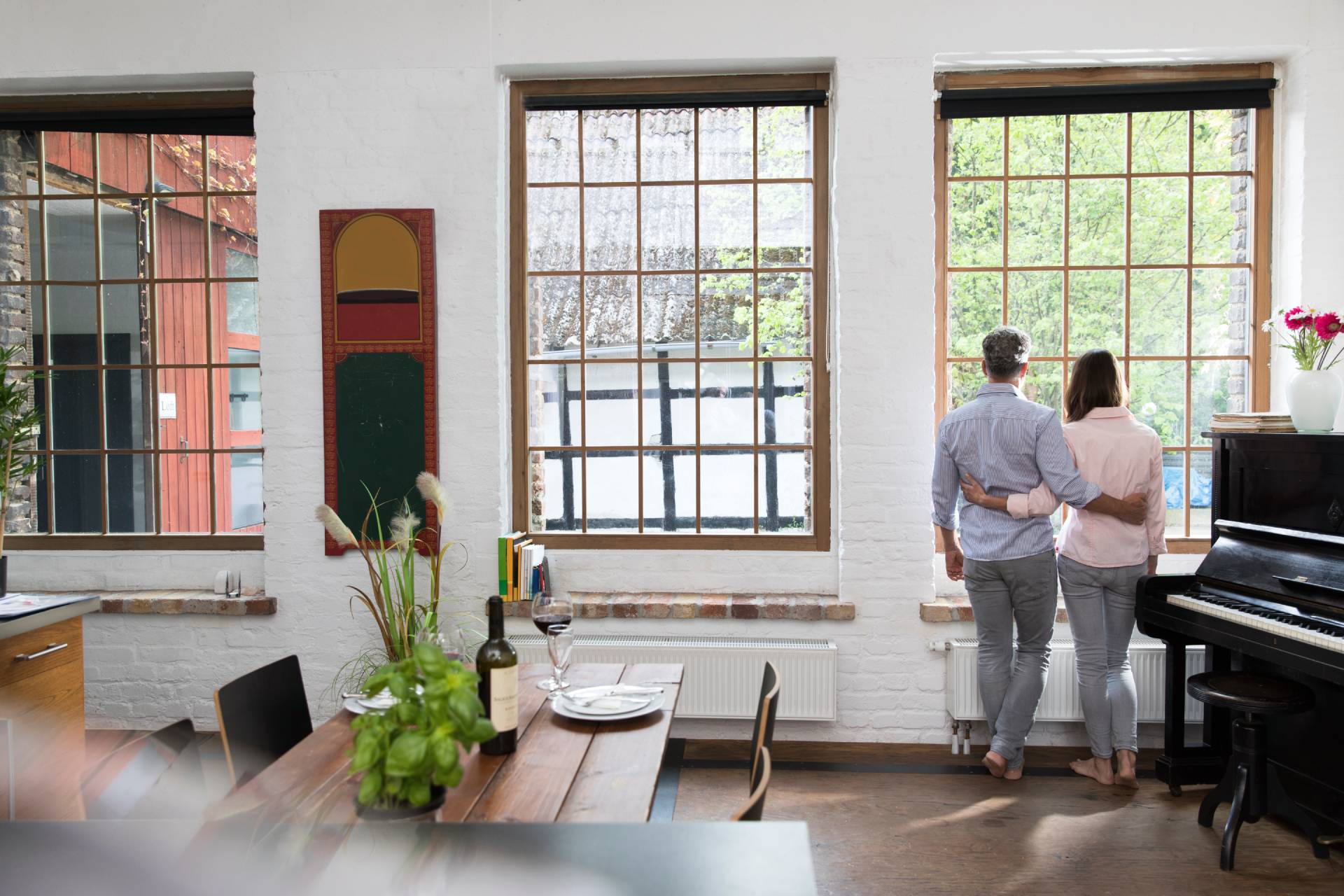Excessive noise can be disruptive and uncomfortable, making it difficult to relax, concentrate, or sleep. Minimizing noise exposure in your space can help protect your health and promote overall wellbeing. By reducing noise levels in your space, you can create a more peaceful and comfortable environment where you can better focus on tasks, rest, or enjoy leisure activities. Upgrading windows and sealing gaps and cracks are some effective ways to soundproof your home. Here are the ways window replacement can reduce noise in your space:
1. Multi-Pane Glass
Many modern windows feature double or triple-pane glass, which consists of multiple layers of glass with a sealed space in between. Inert gas, such as argon or krypton, typically fill the spaces between the glass panes. These gases are denser than air and enhance insulation by reducing heat transfer. The additional layers of glass help block out external noise by adding more material for sound to penetrate through. By upgrading to new windows with enhanced insulation properties, you can create a more comfortable indoor environment while simultaneously reducing the amount of noise that enters your space from the outside.
2. Tight Seals
Older windows may have deteriorated seals or warped frames, leading to gaps that allow noise to penetrate your space. New windows are often installed with tight seals around the frame to prevent air leaks and minimize sound infiltration. The precise fit of newly installed windows ensures minimal gaps or spaces around the window frame where sound can enter. New windows often come with advanced weather stripping materials that create a tight seal between the window sash and the frame. These weather stripping materials, such as foam or rubber gaskets, help block out drafts, moisture, and noise by filling any gaps and preventing air leaks. The tight seals provided by new windows prevent the passage of air and sound, creating a quieter and more comfortable indoor environment.
3. Laminated Glass
Laminated glass consists of two or more layers of glass bonded together with an interlayer of polyvinyl butyral (PVB) or other materials. This construction helps absorb and dampen sound vibrations passing through the glass, effectively reducing the transmission of noise into your space. The multiple layers of glass in laminated glass windows provide a greater mass compared to single-pane windows. Mass is an important factor in soundproofing, as it helps block the transmission of sound waves. Laminated glass is also more resistant to breakage than traditional single-pane glass. In the event that the glass does break, the interlayer holds the glass fragments together, preventing them from shattering and potentially reducing noise from external sources. Overall, installing new windows with laminated glass can be an effective solution for reducing noise in your space, providing enhanced soundproofing properties compared to traditional glass options.
4. Frame Materials
The choice of frame materials can also impact the soundproofing capabilities of windows. Vinyl is a dense material that effectively dampens sound vibrations, making it harder for noise to pass through. Vinyl window frames typically have multiple chambers filled with insulating materials and are popular for their excellent insulation properties. Fibreglass window franes are aksi jbiwb for their superior insulation properties. Fibreglass is a dense material that effectively blocks out noise, especially when combined with multiple layers of glass in the window panes. Fibreglass panes are also resistant to warping, which helps maintain a tight seal and prevent air leaks that could allow noise to enter your space. Wood window frames offer natural insulation and can help reduce noise to some extent. However, they may not be as effective at blocking out noise compared to vinyl or fibreglass frames. Wood is less dense than other frame materials, so it may not provide as much soundproofing unless combined with additional insulation or glazing options. Dense frame materials, such as vinyl and fibreglass, are more effective at reducing noise compared to materials like wood or aluminum. By choosing windows with high-quality frame materials and combining them with other soundproofing features, you can create a quieter and more comfortable indoor environment.
5. Professional Installation
Proper installation by an experienced professional is crucial for maximizing the soundproofing performance of new windows. Professional installers will carefully measure and fit the new windows to the window openings in your home. A precise fit is important for minimizing gaps between the window frame and the surrounding wall, as even small gaps can allow noise to enter your space. Experienced installers know how to properly seal the windows to prevent air leaks and gaps around the frame. Tight seals are crucial for blocking out noise from the outside environment, and professionals have the skills and knowledge to ensure that the windows are sealed effectively. Professional installers know how to properly secure the windows in place and make any necessary adjustments to ensure that they are level and plumb. They will address any potential issues that may affect the soundproofing performance of the windows, such as uneven surfaces or structural deficiencies. Proper installation is essential for achieving the best possible soundproofing results. By hiring experienced installers, you can ensure that your new windows are installed correctly and effectively block out noise from the outside environment.
Investing in new windows, especially those designed specifically for soundproofing, can significantly reduce unwanted noise. Whether it’s in your home, workplace, or recreational areas, creating a quieter environment can positively impact your daily life and overall happiness.



One Comment